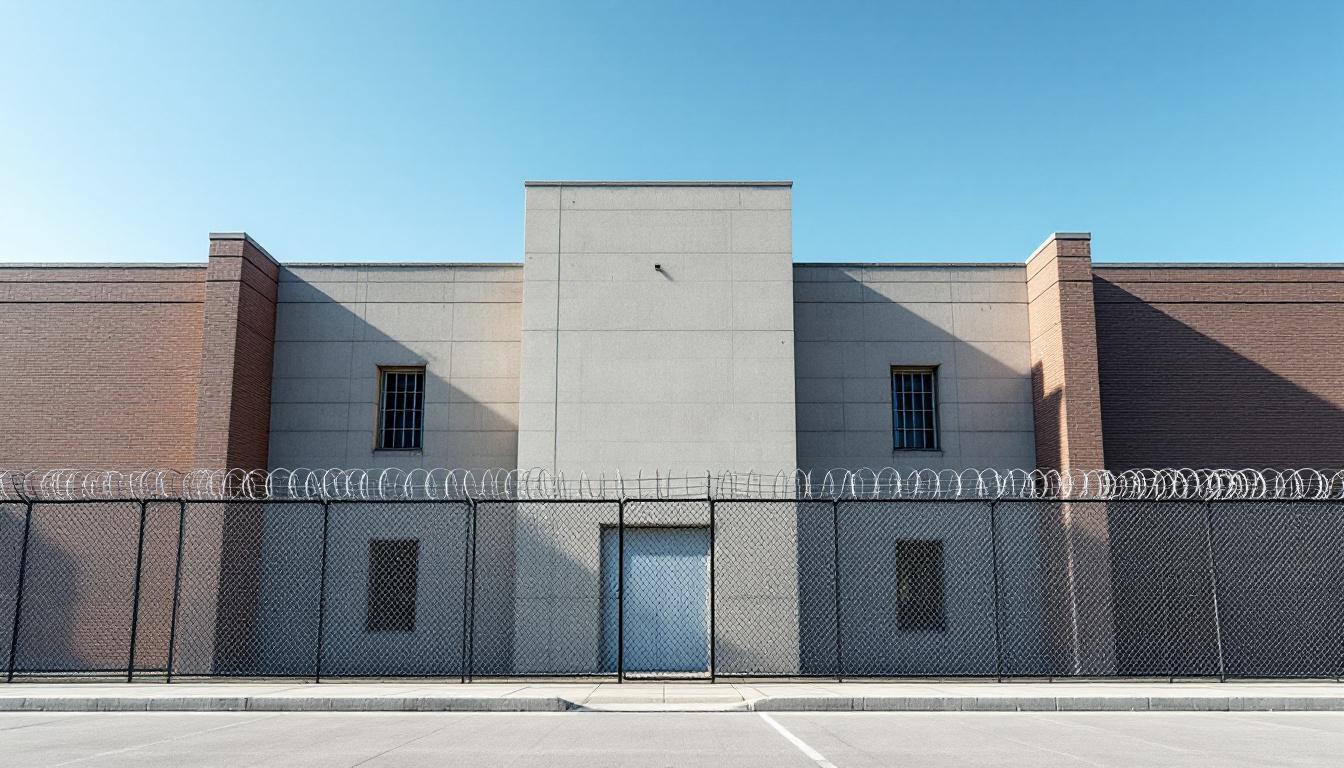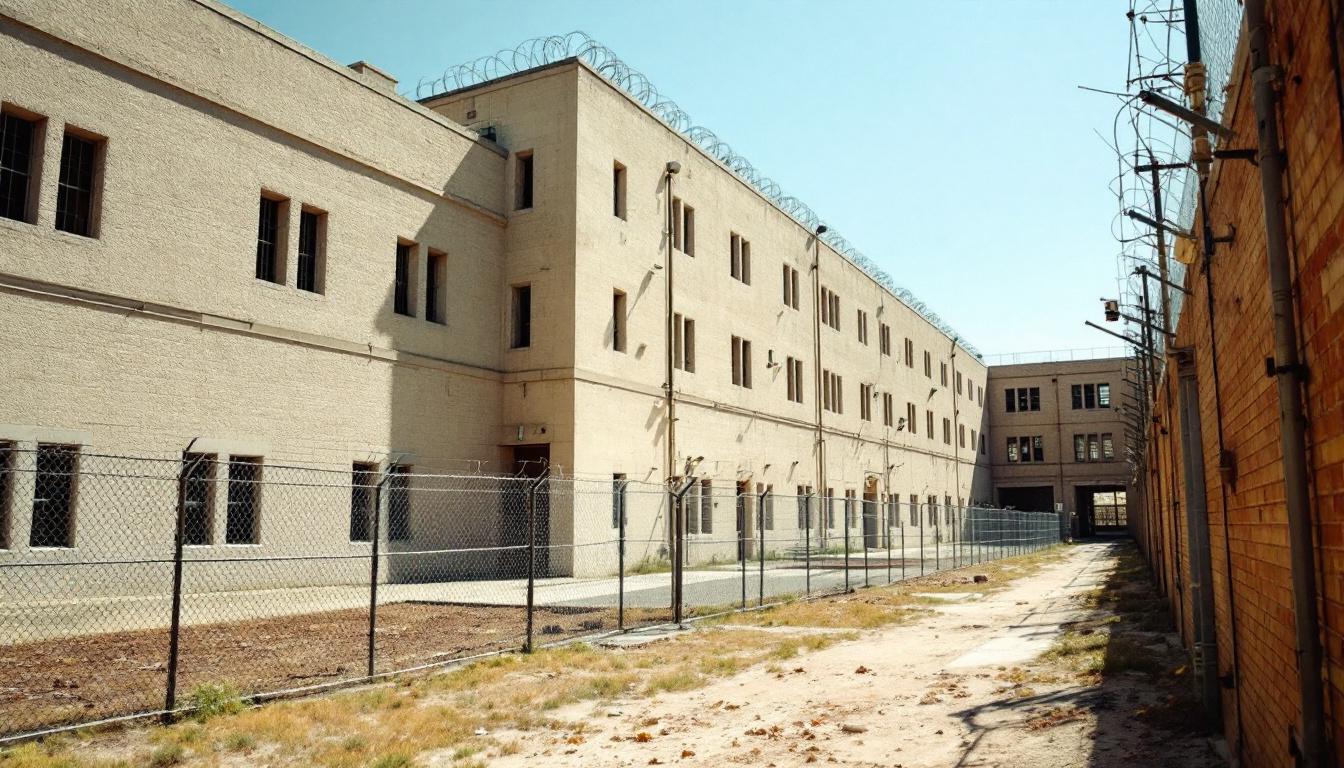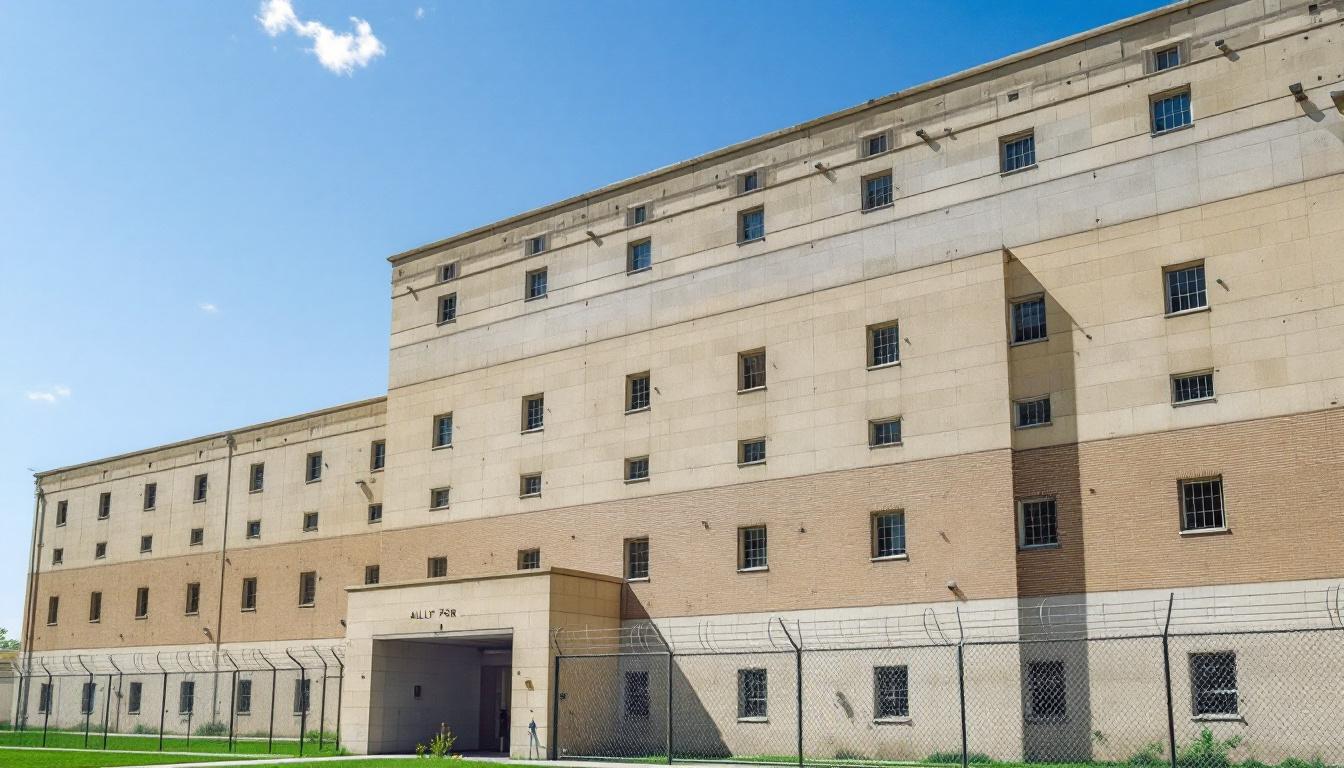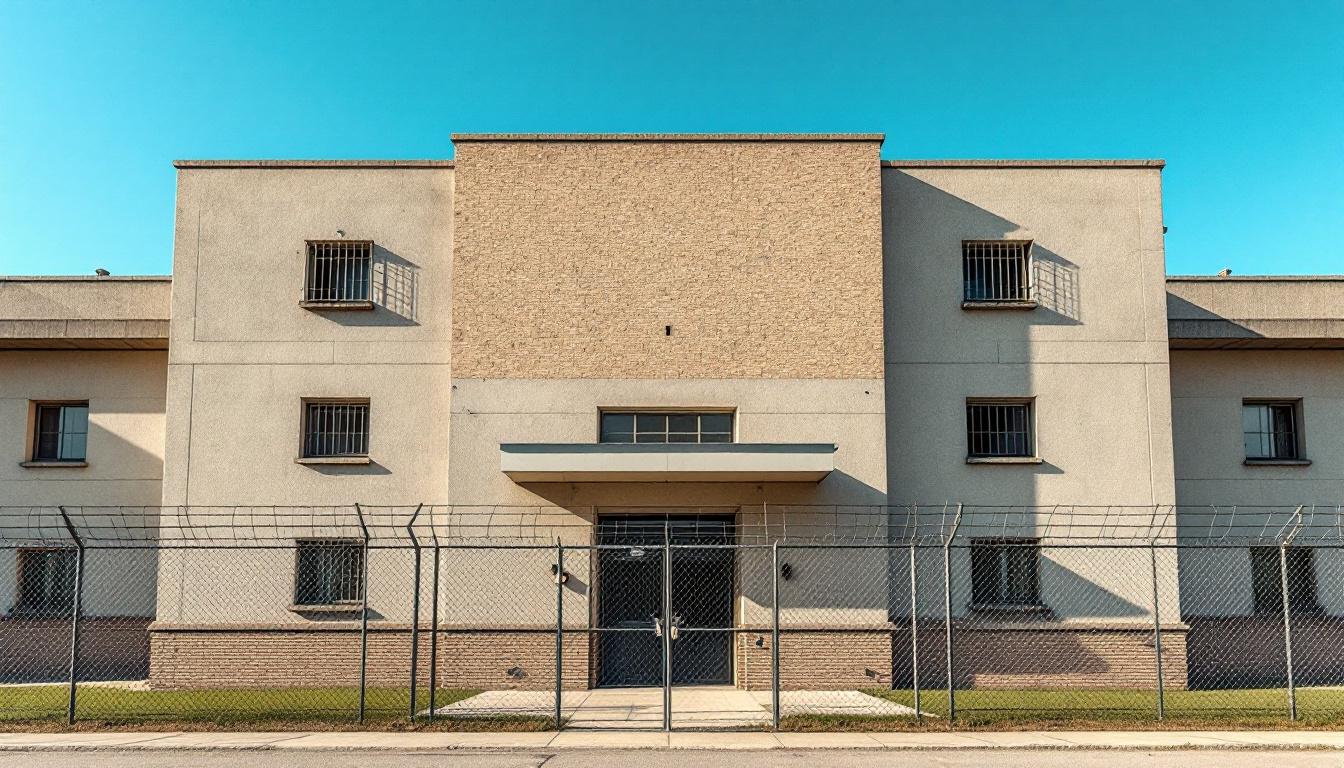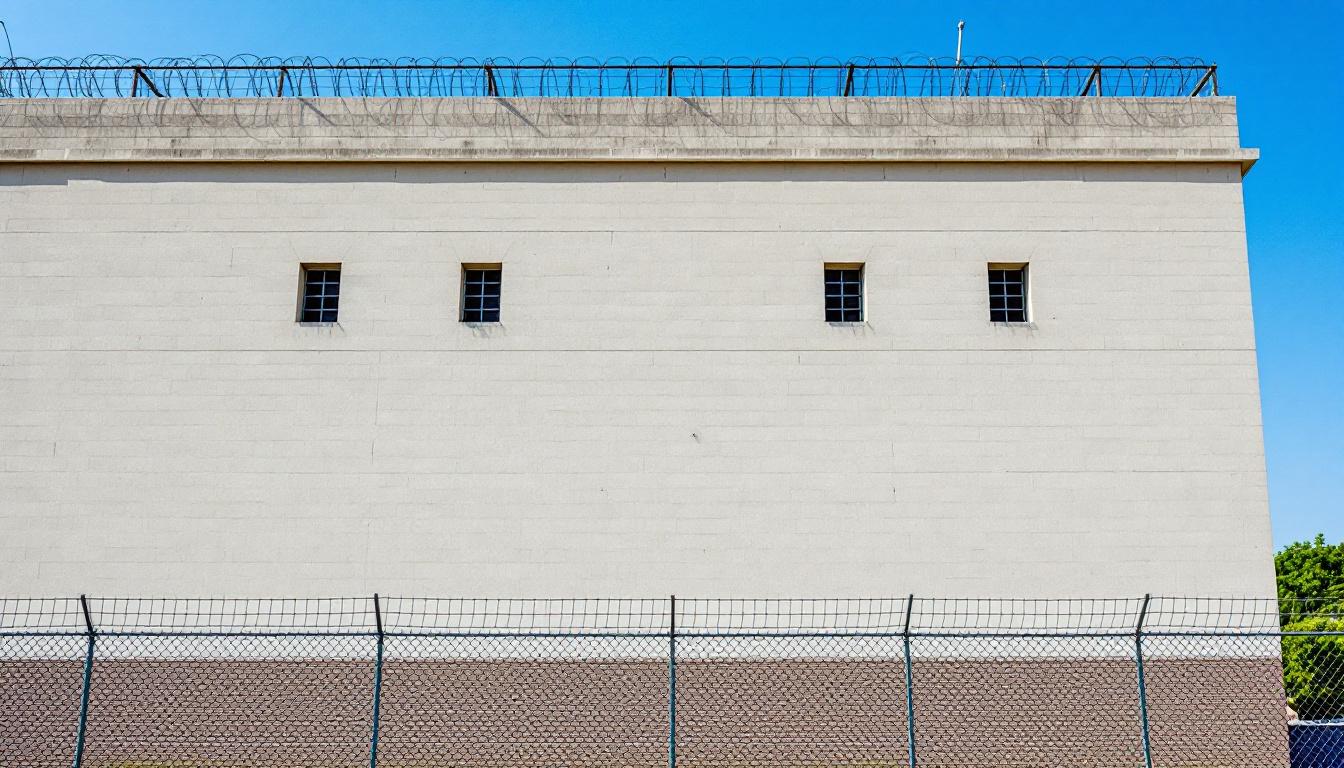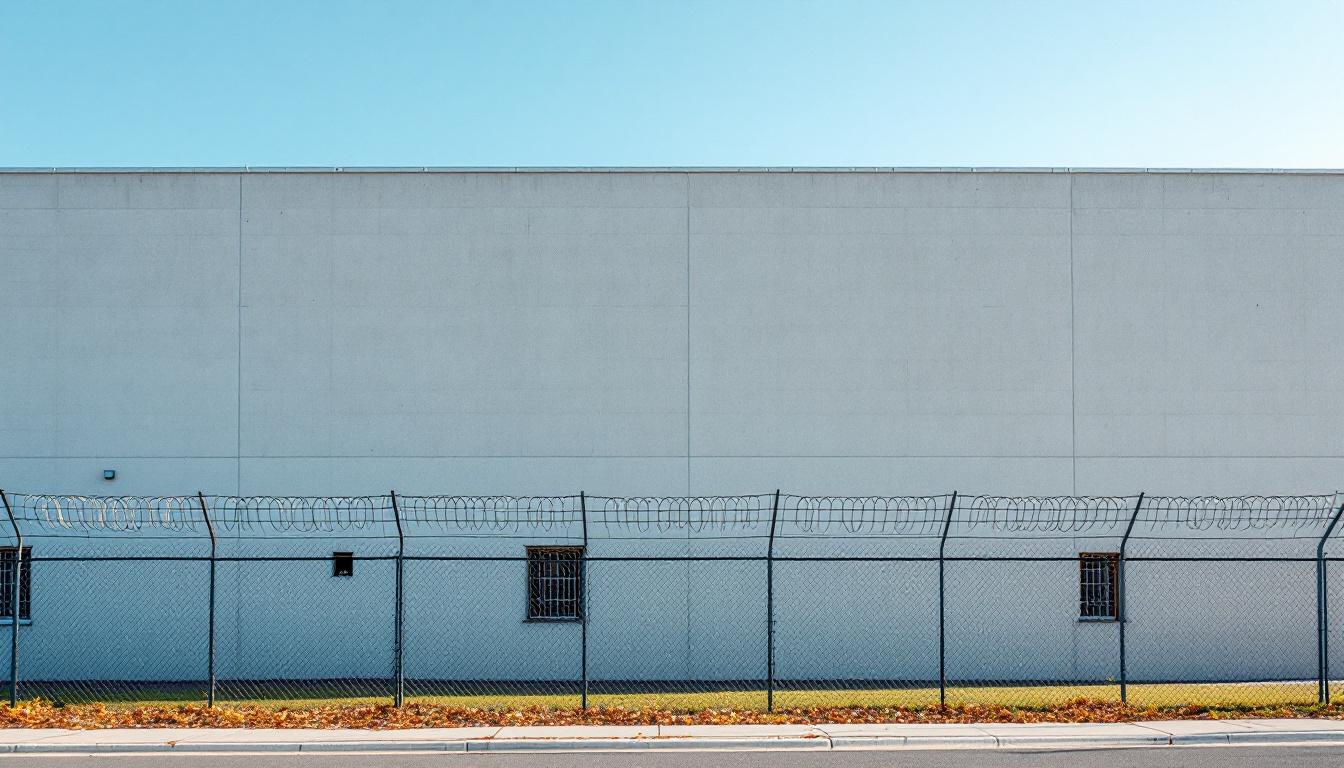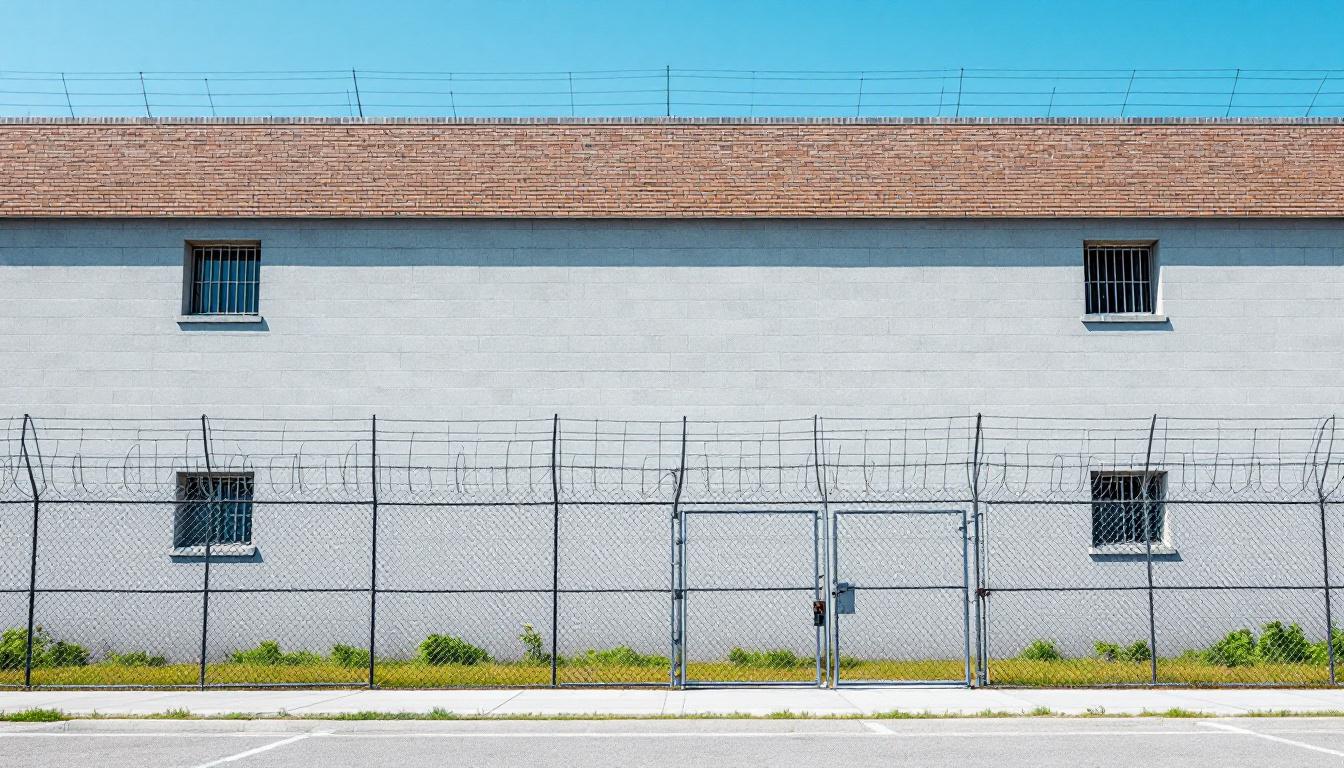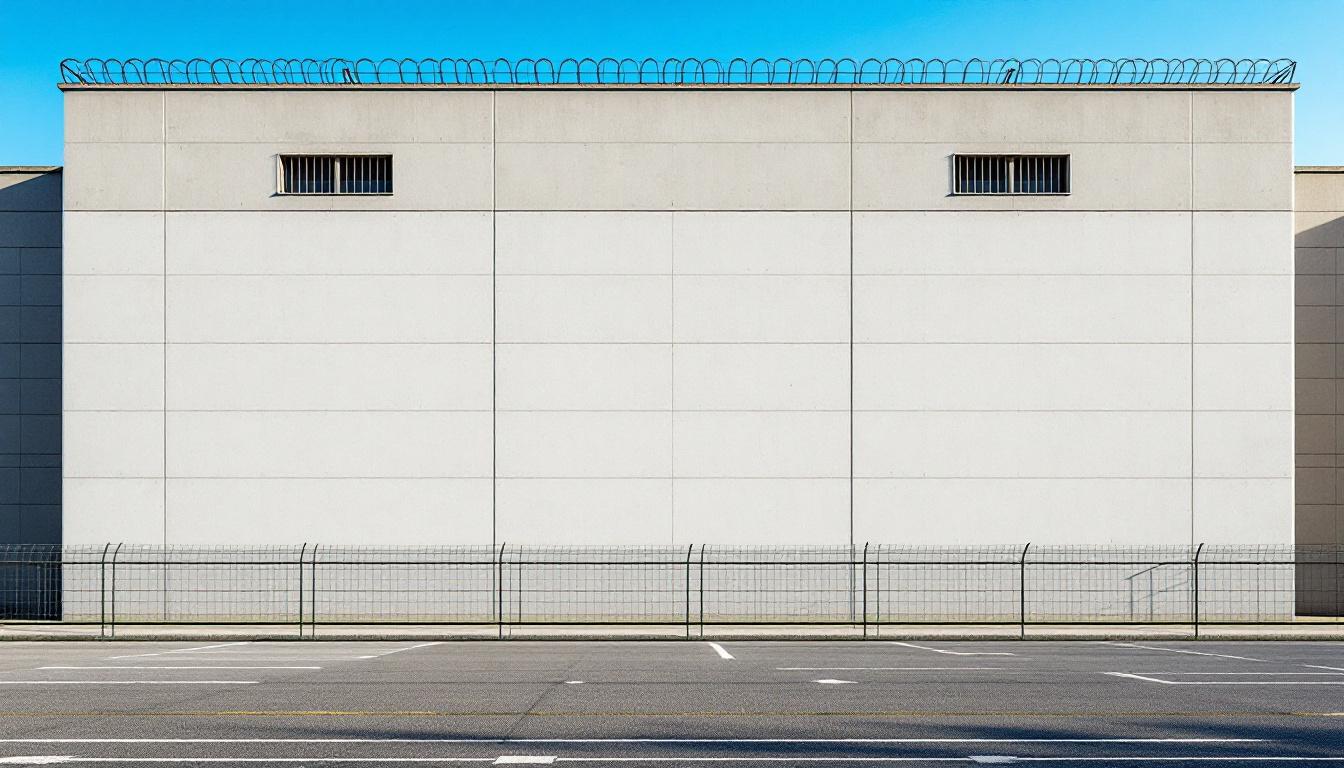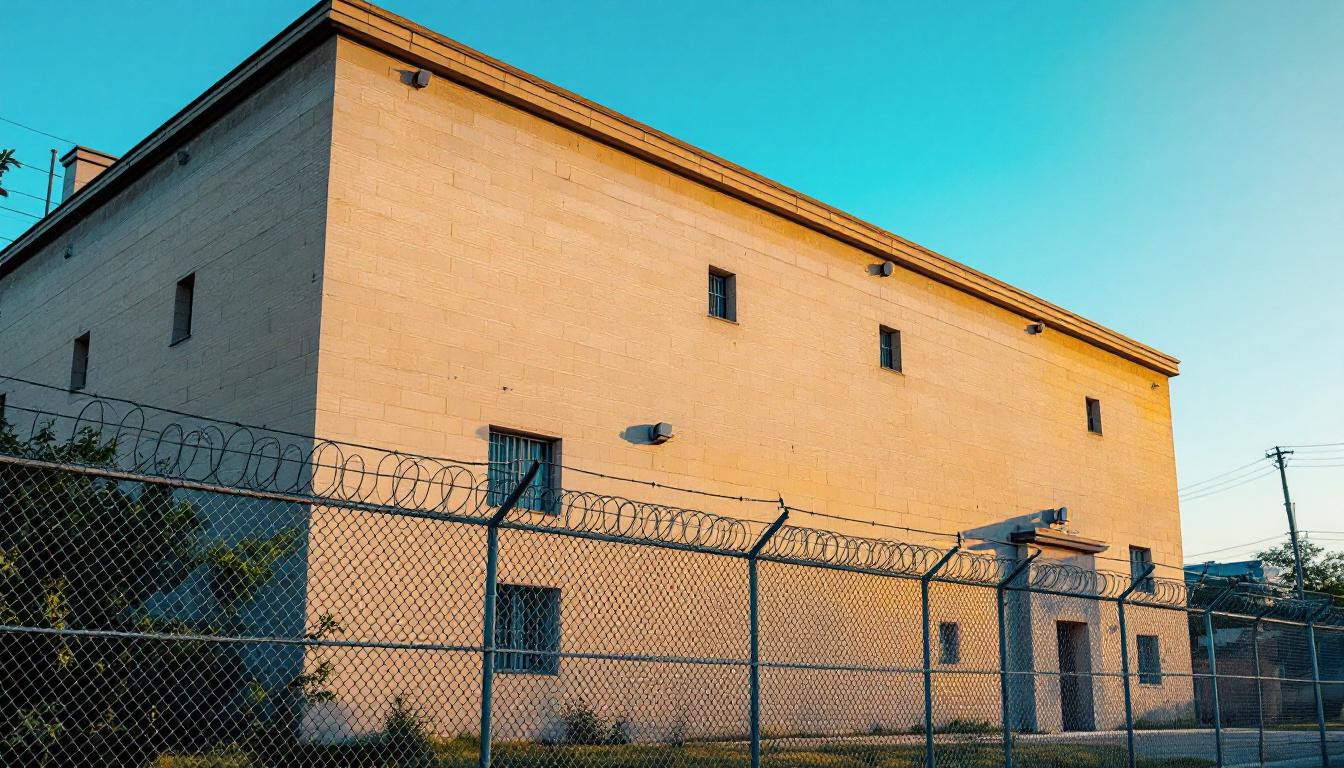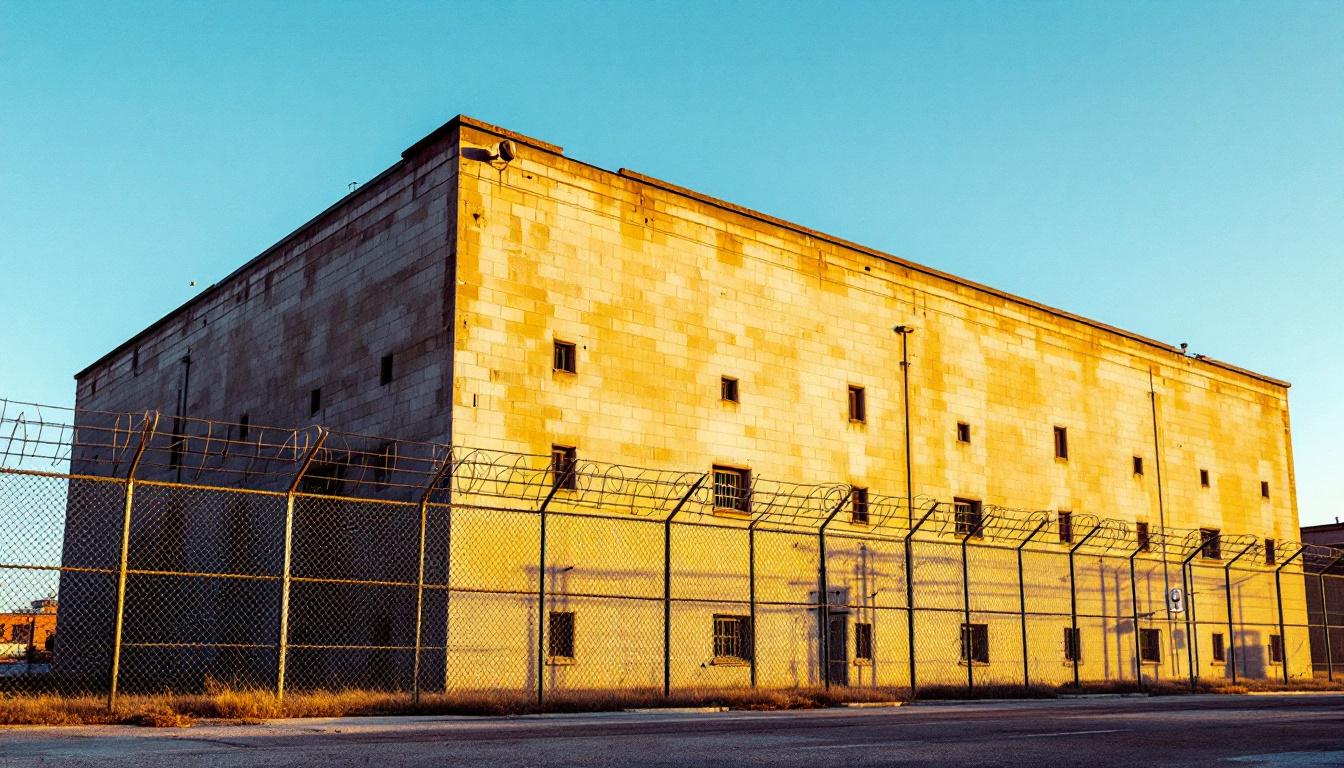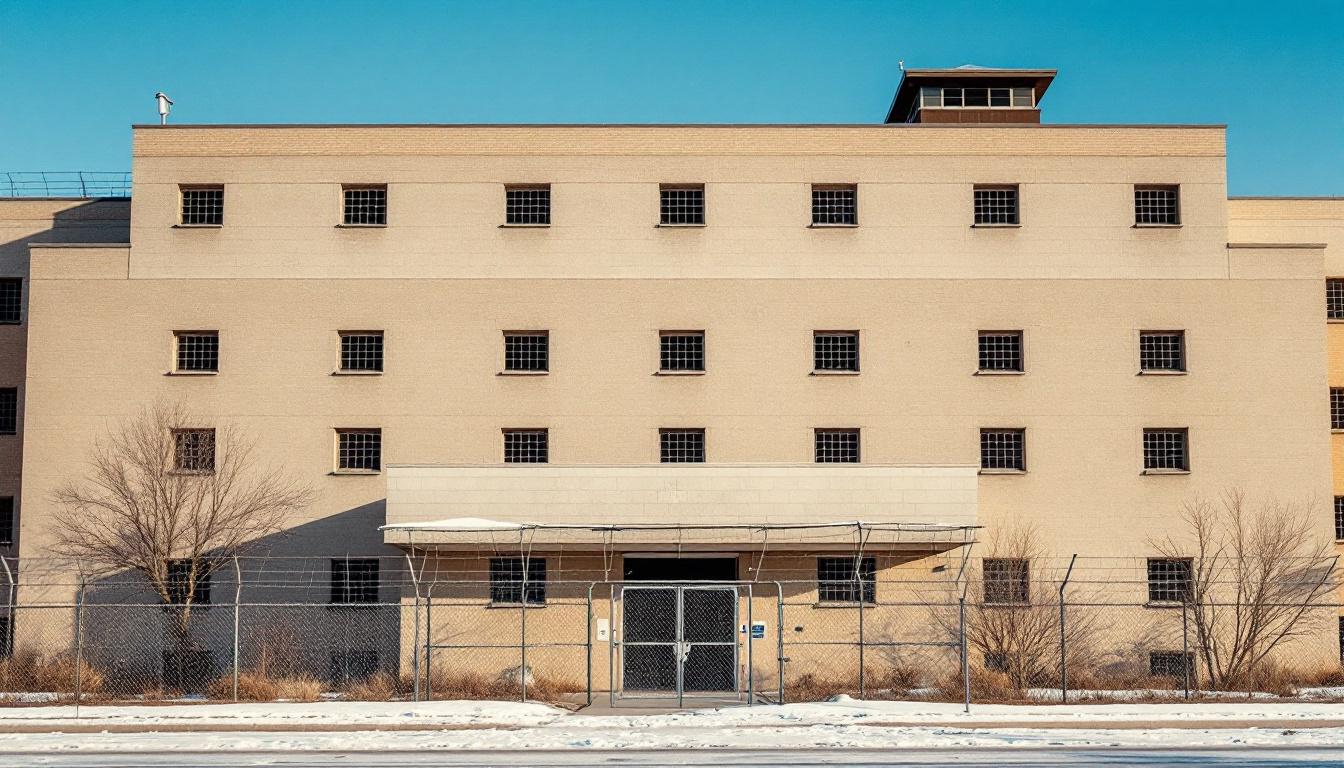
Quick Navigation
How to contact an inmate at Sherburne County Jail
This comprehensive guide will walk you through how to connect with an inmate at Sherburne County Jail. Follow the steps below to find an inmate and send letters and photos:
- Search for the inmate using our search tool below
- Create your account or log in to Penmate
- Write your message (up to 6,000 characters)
- Send instantly - inmates receive printed copies daily
Find an Inmate
Search for an inmate to start communicating today
Tip: You can search by first name, last name, or inmate ID number
To contact a person at Sherburne County Jail start by searching for the person on the official facility website. Perform a search by following these steps:
- Step 1: Enter their first name and last name into the search form and click "Search"
- Step 2: Locate their inmate record
- Step 3: Write down their Inmate ID and any housing information provided
Important! Be sure to enter the person's full name. Nicknames should not be used.
How to Send Messages to Inmates

You can use your phone or computer to send emails, letters, and photos to an inmate. Messages are sent electronically to inmate tablets or kiosks at the facility. If you would like to send a message, start by searching for an inmate at Sherburne County Jail.
Sending Photos and Postcards

A great way to send love and support to a loved one at Sherburne County Jail is to send photos and postcards. It only takes a few minutes to send photos from your phone and it makes a huge difference. You can also mail postcards with words of support and inspiration, or design your own postcard for special moments like birthdays and holidays.
Important! Be sure not to send any explicit photos or they may not be approved by the facility. You can also use a photo printing app like Penmate to make sure your photos are printed at the correct size (4x6 or 3x5) and are mailed according to the rules and regulations of Sherburne County Jail.
Frequently asked questions about Sherburne County Jail
-
How long does it take to deliver a message?
If you're sending an email message your letter is usually delivered within 24-48 hours. For messages sent via mail you should expect delivery within 3-7 days. All messages will need be approved by Sherburne County Jail.
-
How much does it cost to send a message to Sherburne County Jail?
You can send a message free using your phone or mail a message via USPS for the price of a $0.60 stamp and envelope. You can also purchase credits or e-stamps from services starting at $1.99.
-
What services can I use to contact an inmate at Sherburne County Jail?
Penmate
You can use Penmate to send letters and photos to an inmate from your phone. It's an easy way to stay in touch during your loved one's incarceration. Use the inmate locator to find an inmate's location and contact information, then you can send messages within a few minutes.
Securus messaging
Securus may be another option for communicating with an inmate at Sherburne County Jail. You can create a friends and family account and purchase credits to send messages. All messages will be reviewed and must be approved by the facility.
JPay
Some county jails and state prisons may support sending messages with JPay. You must register an account with the system, find your loved one, and purchase stamps to send messages. For some locations you can also attach photos.
Smart Jail Mail
You may also check if Smart Jail Mail is available at Sherburne County Jail. Smart Jail Mail is operated by Smart Communications and has contracted with some state and county jails. After purchasing credits, your messages and photos are sent to the facility, printed out, and then handed out to your loved one.
-
What is the mailing address of Sherburne County Jail?
Mailing address:
Sherburne County Jail
13880 Business Ctr Dr NW
Elk River, MN 55330
Phone: (763) 765-3800Business hours:
- Monday: Open 24 hours
- Tuesday: Open 24 hours
- Wednesday: Open 24 hours
- Thursday: Open 24 hours
- Friday: Open 24 hours
- Saturday: Open 24 hours
- Sunday: Open 24 hours
-
What are the visiting hours at Sherburne County Jail?
Visiting hours at Sherburne County Jail vary by housing unit and security level. Generally, visits are scheduled on weekends and holidays, with some facilities offering weekday visits. Contact the facility directly at (763) 765-3800 or check their website for the current visiting schedule. Visits typically last 30-60 minutes and must be scheduled in advance.
-
What items are prohibited when sending mail to Sherburne County Jail?
Prohibited items typically include: cash, personal checks, stamps, stickers, glitter, glue, tape, staples, paperclips, polaroid photos, musical or blank greeting cards, hardcover books, magazines with staples, and any items containing metal or electronics. Only send letters on plain white paper with blue or black ink. Photos must be printed on regular photo paper (no Polaroids). Always check with Sherburne County Jail for their specific mail policies.
-
How do I send money to an inmate at Sherburne County Jail?
You can send money to an inmate at Sherburne County Jail through several methods: 1) Online using JPay, Access Corrections, or the facility's approved vendor, 2) Money orders mailed directly to the facility with the inmate's name and ID number, 3) Kiosks located in the facility lobby, or 4) Over the phone using a credit or debit card. Fees vary by method, typically ranging from $2.95 to $11.95 per transaction.
-
Can I schedule a video visit with an inmate at Sherburne County Jail?
Many facilities now offer video visitation as an alternative to in-person visits. At Sherburne County Jail, video visits may be available through services like Penmate, Securus Video Connect, GTL, or ICSolutions. Video visits typically cost $10-20 for 20-30 minutes and must be scheduled in advance. You'll need a computer or smartphone with a camera and reliable internet connection. Contact the facility for their specific video visitation policies and approved vendors.
-
What identification do I need to visit an inmate at Sherburne County Jail?
All visitors must present valid government-issued photo identification such as a driver's license, state ID, passport, or military ID. Minors must be accompanied by a parent or legal guardian who can provide the minor's birth certificate. Some facilities require visitors to be on the inmate's approved visitation list, which may require a background check. Contact Sherburne County Jail for specific ID requirements and visitor approval procedures.
-
How can I find out an inmate's release date?
To find an inmate's release date at Sherburne County Jail, you can: 1) Use the online inmate search tool if available, 2) Call the facility's records department, 3) Contact the inmate's case manager or counselor, or 4) Have the inmate provide this information during a call or visit. For privacy reasons, some facilities only release this information to immediate family members.
Facility Overview
Contact Information
Sherburne County Jail13880 Business Ctr Dr NW
Elk River, MN 55330
Phone: (763) 765-3800
Official Website

About Sherburne County Jail
County jails throughout Minnesota's diverse communities serve as vital bridges between law enforcement and rehabilitation, with SHERBURNE COUNTY JAIL in Elk River exemplifying this collaborative approach to corrections. Nestled within the growing suburban landscape of the Twin Cities metropolitan area, this MN correctional facility operates as an integral component of the regional justice system, emphasizing community partnerships and evidence-based programming. The facility typically works alongside local service providers, faith-based organizations, and educational institutions to create pathways for meaningful reintegration, recognizing that effective corrections extends far beyond secure housing to encompass comprehensive support systems.
Programs at the facility generally focus on addressing the underlying factors that contribute to criminal behavior, with offerings that may include substance abuse counseling, educational opportunities, and workforce development initiatives. The population services often emphasize maintaining family connections through structured visitation programs and communication systems designed to preserve these crucial relationships during incarceration. Mental health support and medical care typically form cornerstone elements of the facility's approach, working in coordination with Sherburne County's broader network of community health resources. Through these collaborative efforts, the county jail often serves as a launching point for individuals transitioning back into the Elk River community and surrounding areas, fostering partnerships that extend support beyond release dates and into long-term stability and success.
Programs & Services
Through comprehensive programming designed to address the diverse needs of individuals in custody, Sherburne County Jail creates pathways for personal growth and successful community reintegration. The facility's approach recognizes that meaningful change occurs when the population has access to structured opportunities that build both practical skills and personal confidence. These programs typically emphasize not just immediate learning outcomes, but long-term stability and the development of tools necessary for maintaining positive relationships with family and community members upon release.
Educational programs form a cornerstone of the facility's offerings, often including basic literacy instruction, GED preparation, and continuing education opportunities that help participants advance their academic credentials. Moreover, vocational training programs may supply hands-on experience in high-demand fields such as automotive repair and carpentry, giving the population marketable skills that can translate directly into employment opportunities. These vocational initiatives typically combine classroom instruction with practical application, allowing participants to develop both technical competencies and workplace readiness skills that employers value.
Chemical dependency treatment programs address one of the most significant barriers to successful reintegration, often incorporating both group and individual counseling sessions that help participants understand and manage addiction-related challenges. Additionally, mentoring programs may offer ongoing support by connecting the population with community volunteers or peer advocates who provide guidance, encouragement, and practical assistance during the transition process. These therapeutic and support services typically work together to create a network of resources that extends beyond the facility walls, helping individuals build the foundation for sustained positive change in their lives.
Daily Life & Visitation

Systematic organization forms the backbone of daily operations, with structured routines that currently guide every aspect of life for the population. The facility continues to operate on predetermined schedules that typically begin with early morning counts and progress through designated meal times, programming sessions, and evening procedures. Generally, the population moves through their day according to established protocols that supply both security and predictability to the institutional environment.
Housing arrangements typically consist of dormitory-style accommodations or individual cells, depending on classification levels and available space. The population usually shares common areas for meals, which are often served in a central dining facility at scheduled times throughout the day. Personal property is generally limited to approved items, and commissary services may offer additional necessities and approved comfort items for purchase.
Moreover, recreational opportunities often include access to television areas, reading materials, and exercise periods when space and staffing permit. Visitation policies typically allow for scheduled visits with family members, whereas communication options may include monitored phone calls and correspondence. Work assignments within the facility often supply structure to daily routines, with the population potentially participating in food service, cleaning duties, or maintenance tasks. Programming schedules may include educational opportunities, substance abuse counseling, or other rehabilitative services designed to support successful reintegration into the community.
Ready to Connect?
Start communicating with your loved one today
Search for an Inmate
